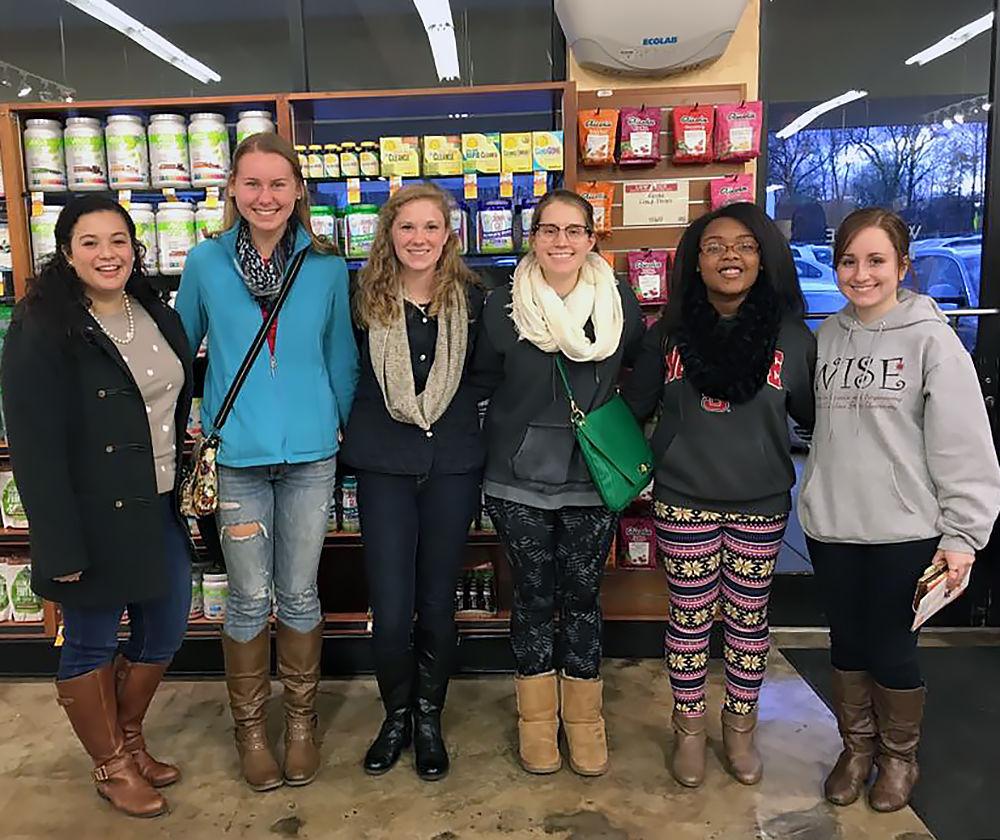Eating healthy in college can be a feat by itself, and with food allergies or intolerances limiting options, meals can become stressful instead of enjoyable. One group helping new and returning students tackle the challenges of food allergies is the SafeEats Food Allergy Club. After completely revamping, they are ready for new members this year.
SafeEats is the new and improved version of the Food Allergy Support Group, as older students may remember it. Restarted by former members, Olivia Chadwick, a fourth-year studying applied nutrition, and Dara Nelson, a fourth-year studying applied nutrition. Both women said they remembered how difficult eating on campus was for them during their first years on campus and how much the situation has improved for new students, especially since all dining staff were given allergy training this past summer.
“Dining is so good with labeling allergies and ingredients now, and all the staff has to be trained about allergies,” Nelson said. “I was always anxious about eating in the dining halls when I started, but the improvements … help ease parents’ and kids’ anxiety.”
Chadwick and Nelson were first-years when they joined the Food Allergy Support Group and discovered a community. The president and vice president of SafeEats hope to provide the new members with the same sense of community within the new club.
“The main goal is to provide a supportive, safe and healthy environment for students on campus with food allergies, intolerances and sensitivities,” Chadwick said. “But we’re also about making friends with similar connections and doing fun activities.”
In past years, the club toured Whole Foods and the State Farmers Market, and they will most likely visit these again. Many guest lecturers, such as dieticians, also came to speak at meetings. One previous guest speaker was Allergic Traveler, a Greensboro-based company that prints a person’s allergy information into an easy-to-carry business card format. The company spoke to the organization about the topic of how to see the world with food restrictions.
Until the club’s first meeting, officers will be brainstorming meeting ideas and planning club events. Chadwick said she is looking to partner SafeEats with organizations associated with food intolerances to possibly receive coupons or products, as well as partnering with NC State Dining to send emails about events the group members might be interested in.
“We have so many ideas for meetings, we may create a blog for tips about eating on campus, or for recipe sharing,” Chadwick said. “We want to do one formal meeting a month and one social event, such as bowling, dinner or something fun like that.”
The formal meetings will only be around an hour, and the social events could be anything, including a “bring your own dish” potluck or a dinner at a well-known allergy friendly restaurant.
The NC State director of nutrition and wellness, Lisa Eberhart, oversees SafeEats as their faculty advisor and occasionally makes a guest lecture appearance at meetings.
“As a dining diplomat I spoke to freshmen this summer during orientation about where to eat on campus and how to live without a kitchen,” Chadwick said. “It is very difficult, but there is a community to help.”
The SafeEats Food Allergy Club is planning to have their first meeting sometime in mid-October on campus. While it is suggested to have a food allergy to join, this is not necessary. The club is open to anyone and there are no dues.
“If you’re interested in lectures, want to make friends or are interested in the activity we’re doing, it is totally okay to come, and bring your friends too,” Nelson said.













